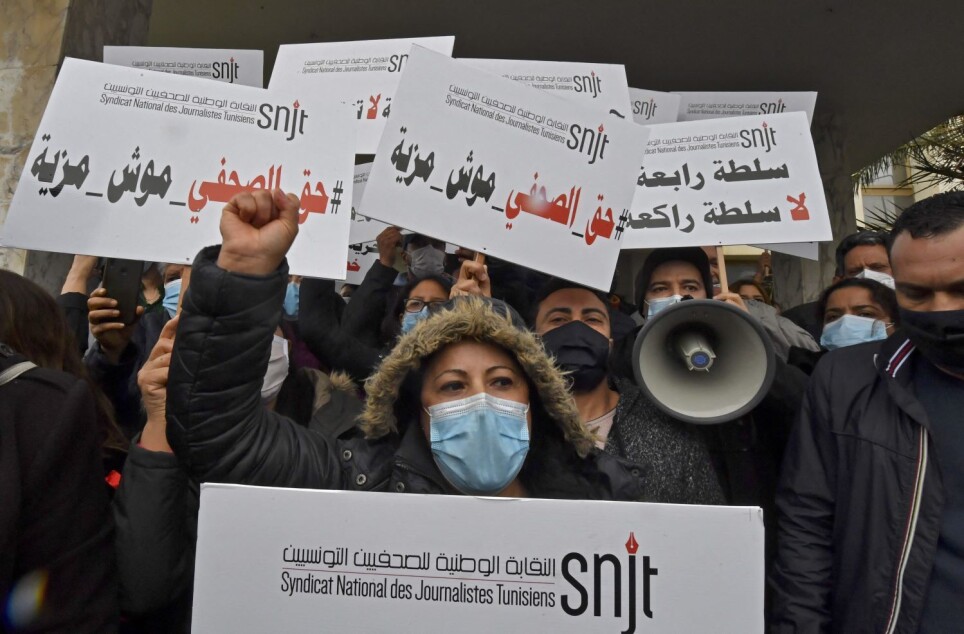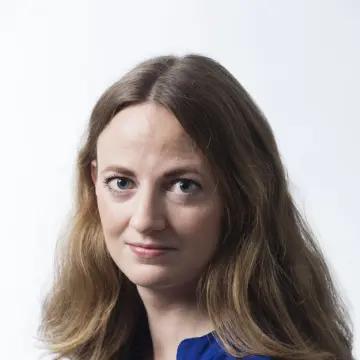THIS ARTICLE/PRESS RELEASE IS PAID FOR AND PRESENTED BY NUPI, Norwegian Institute of International Affairs - read more

How do journalists in the Middle East cope with political pressure?
All over the world, media-owners and lobbyists use journalists and the media as political tools for their own ends. How do journalists cope with this? A NUPI project has examined this issue in Tunisia and Lebanon.
“Journalists are vulnerable to pressure from politicians and business lobbies. In countries with strong democratic institutions, solid economies and firmly-established professional norms, journalists stand stronger – but in Tunisia and Lebanon they must fight hard for their freedom, livelihoods and the truth. The counter-forces are strong,” explains Kjetil Selvik, Senior Research Fellow at NUPI.
Together with colleagues he has studied the political role of journalism in Tunisia and Lebanon, the two freest Arab countries, through the research project ‘Journalism in struggles for democracy: media and polarization in the Middle East’.
“In April this year we saw an example of Tunisian journalists resisting political control. A large number of media professionals took to the streets because Prime Minister Hichem Mechichi appointed Ben Younes chief executive of the Tunisian news agency Tunis Africa Presse (TAP). The protesters saw Younes as being too close to the political party Ennahda,” says Selvik.
The research team recently published two articles in the prestigious journals Journalism Studies and The International Journal of Press/Politics.
Turning the situation to their advantage
Their project has examined how journalists deal with the political instrumentalization of the media, and how they respond in critical situations where key democratic assets are at stake. In the media study context, ‘instrumentalization’ implies that media and journalists are used as tools by media-owners and lobbyists.
“We find that media instrumentalization leads to tensions between journalists, as well as between journalists and politicians,” says Selvik.
But even though such instrumentalization makes journalism less independent – thereby weakening the position of journalists as checks on the executive power – it also spurs dedicated journalists to fight back, Selvik goes on to explain:
“These media professionals expand their room for manoeuvre building and activating networks, exploiting the competition between politicians to their own advantage, hooking onto issues that generate support in the population, cooperating with civil society organizations, and making use of digital tools. There are wide distances between the common people and the powerful, often extremely rich, leaders in these countries. During the mass protests in Lebanon back in 2019/2020, matters came to a head. Many journalists, increasingly fed up with wide-ranging corruption, became hard-hitting advocates for the protesters.”
Arab media: understudied
The study conducted by Selvik and colleagues builds on a combination of interviews, content analysis and collection of Twitter data. The researchers carried out 42 face-to-face interviews with journalists in Lebanon and 38 in Tunisia, supplemented by interviews with focus groups and civil society actors.
As to the importance of this project, Selvik explains: “The media and journalism in Arab countries have remained severely understudied, but they exert considerable influence on political developments in the Middle East.”
Buying support from media and journalists
Whereas Tunisia is widely seen as a democracy, Lebanon is considered a hybrid regime. Such regimes combine traits characteristic of democracies – such as free elections and freedom of speech – with traits associated with authoritarian regimes, such as politicians monopolizing power and evading public scrutiny.
“Democracy in Tunisia is also fragile, and the legacies of former President Ben Ali have persisted, not least in the media realm. Many influential radio and TV channels and journalists gained their positions under the old regime, and continue to maintain close ties with its elites. Their framing of news stories often depict Tunisia’s transition to democracy in a bad light,” Selvik notes.
He explains that both hybrid regimes and fragile democracies are characterized by systemic insecurities that affect journalists and politicians alike:
“For journalists, insecurity is grounded in their economic dependence on the media-owners, and the poor protection of democratic rights. For politicians, the insecurity is linked to the risk of losing elections as well as the overhanging threat of media scandals, since there is freedom of speech. Politicians and moguls often buy support from media corporations and journalists to protect themselves from these threats.”
Surprising findings
Some findings surprised the research team.
“Since freedom of speech and democracy are normally advantageous for journalists, we expected them to be advocates for civil and political rights,” Selvik continues.
But through systematic content analysis of how TV commentators – who were journalists – responded to the terrorist attack against the Bardo National Museum in Tunisia in 2015, they found a more complex answer.
“Several prominent commentators cast doubts on the benefits of the transition to democracy, falling back on arguments from the Ben-Ali days and objecting that security was more important. They gave full support to President Beji Caid Essepsi, who after the attack introduced restrictions on civil rights and ended attempts to prosecute persons accused of corruption under the old regime.”
The existing political science literature has focused on politicians and magnates’ manipulation of the media and the strategies they use.
“We take a different approach, showing how journalists navigate vis-à-vis politicians exacerbating the system’s volatility in the process, Selvik notes, and concludes:
Our findings contribute to a better understanding of the role played by journalists in countries experimenting with democracy, where powerful actors tend to utilize the media as tools for their own narrow interests. Our study offers new insights into the challenges and possibilities facing Arab journalism today, and deeper knowledge on how the fight for democracy is affected.”
References:
Katrin Voltmer, Kjetil Selvik og Jacob Høigilt: Hybrid Media and Hybrid Politics: Contesting Informational Uncertainty in Lebanon and Tunisia. The International Journal of Press/Politics, 2021.
Kjetil Selvik og Jacob Høigilt: Journalism under instrumentalized political parallelism. Journalism Studies, 2021.
See more content from NUPI:
-
The war in Ukraine: "France and the UK clearly stand out"
-
How Iran’s regime exploits emotions to crush protests
-
Improving the impact of the UN Peacebuilding Commission
-
Controversial calories: How do we measure hunger?
-
How Norway and the EU can collaborate in the minerals and battery sector
-
Nigerian authorities plan to close refugee camps housing a million people






































